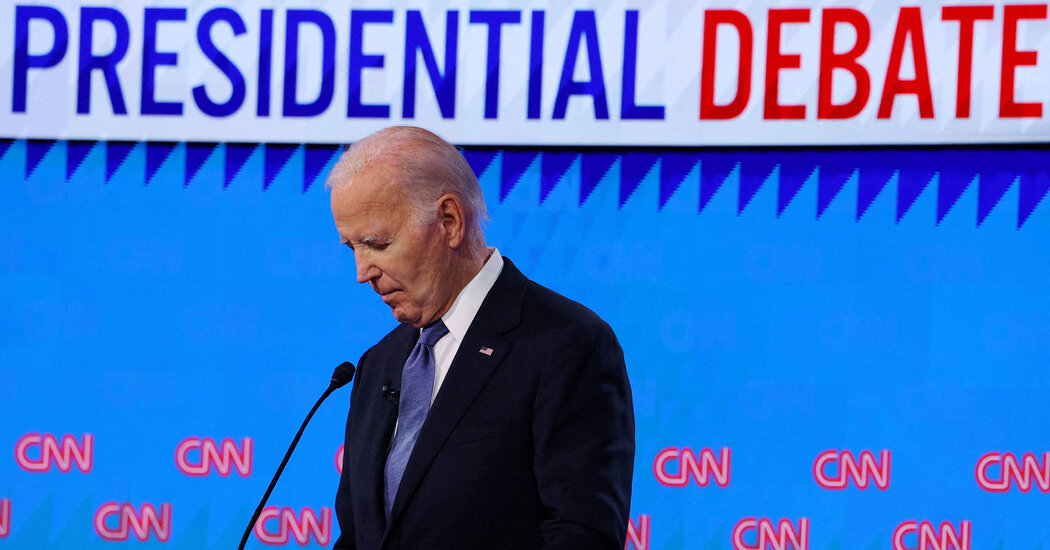One Night of TV Canceled a President

As soon as TV sets landed in American living rooms, media critics worried that television would dominate politics, and the medium wasted no time proving them right. Richard M. Nixon lost in 1960 to the glamorous John F. Kennedy after a shaky, sweaty debate that played better for him on the radio. After Ronald Reagan zingered his way to a second term in 1984, Neil Postman wrote that in the TV era, “debates were conceived as boxing matches.”
But not until now had a president KO’ed himself in one round.
On Sunday, President Biden announced his withdrawal from the 2024 campaign, ending an astounding disintegration that began with Mr. Biden’s discombobulated debate against Donald J. Trump late in June. Mr. Biden released his decision on X, formerly Twitter, but the moment recalled when Lyndon B. Johnson made a similar announcement on TV in 1968, or perhaps when Mr. Nixon resigned the presidency 50 years ago.
This collapse, however, was not the result of an overseas war. There was no break-in and coverup. There was simply a horrendous TV outing — less than two hours that changed history.
Yes, Mr. Biden, at 81, suffered doubts about his age, vigor and acuity before the debate. Yes, his mini campaign afterward to redeem himself with speeches, interviews and a news conference did not help either. Mr. Biden had a hand in his fate. So did Father Time.
Still, it took a single, horrifying prime-time failure to crystallize the problem. As he and his allies argued, 14 million people voted for him in the primary. But 51.3 million people saw his faculties fail him on live TV, and that’s before it was clipped and ricocheted and repeated.
Certainly the relentless digital-media cycle played a part too; maybe a pre-Twitter president could have ridden this out. But in a TikTok era, it still takes TV to concentrate that many eyes simultaneously on the one, unignorable, everybody-saw-it moment that starts the avalanche.